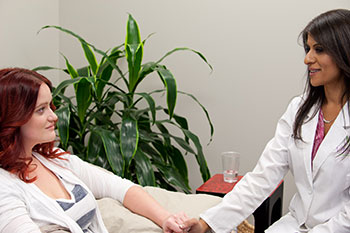

The term "naturopathy" originates from "natura" ( Latin root for birth) and "pathos" (the Greek root for suffering) to suggest "natural healing". While some schools exist for naturopaths, and some jurisdictions allow such practitioners to call themselves doctors, the lack of accreditation, scientific medical training, and quantifiable positive results means they lack the competency of true medical doctors. Some states have lax regulations, however, and may allow naturopaths to perform minor surgery or even prescribe drugs. states and tightly regulated in many others. Naturopaths frequently campaign for legal recognition in the United States. In addition to condemnations and criticism from the medical community, such as the American Cancer Society, naturopaths have repeatedly been denounced as and accused of being charlatans and practicing quackery. Naturopathy is considered by the medical profession to be ineffective and harmful, raising ethical issues about its practice. Instead, naturopathic practice relies on unscientific notions, often leading naturopaths to diagnoses and treatments that have no factual merit. Naturopathic practitioners commonly recommend against following modern medical practices, including but not limited to medical testing, drugs, vaccinations, and surgery. The ideology and methods of naturopathy are based on vitalism and folk medicine rather than evidence-based medicine, although practitioners may use techniques supported by evidence. Difficult to generalize, these treatments range from outright quackery, like homeopathy, to widely accepted practices like certain forms of psychotherapy. A wide array of pseudoscientific practices branded as "natural", "non-invasive", or promoting "self-healing" are employed by its practitioners, who are known as naturopaths. Naturopathy, or naturopathic medicine, is a form of alternative medicine.


 0 kommentar(er)
0 kommentar(er)
